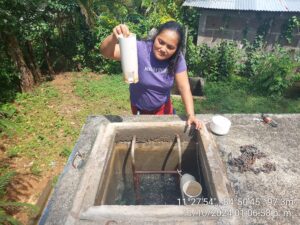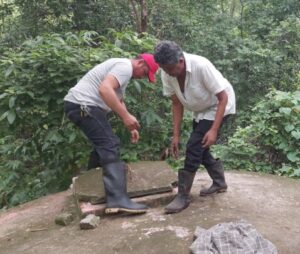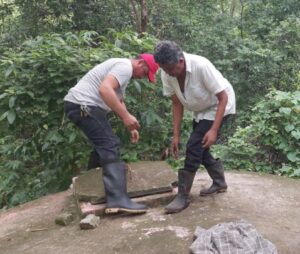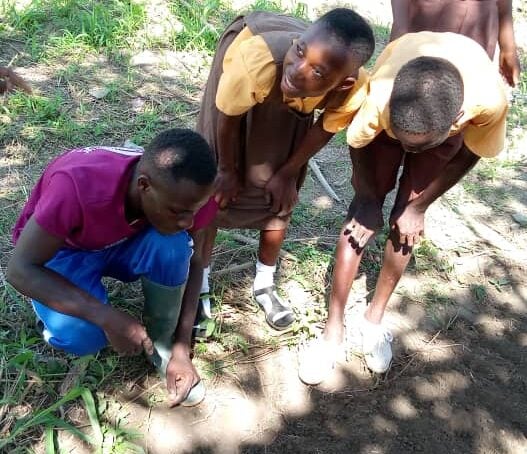
Young People Have the Ability to Shape the Future of Agriculture in Ghana
By Justice Amoka Sam – Community Crop and Livestock Specialist
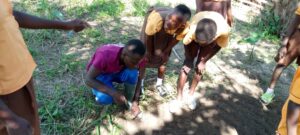
Getting young people involved in ag!
In Self-Help International’s partner communities in Ghana, it is common to see children helping their parents on the farm during the weekend and after school. The produce grown on these farms serve as the major source of food for families and provide an income at the local market. One major challenge faced by farming families has been low yields, which has sometimes been caused by not being able to implement good agricultural and environmental practices.
Getting rural farmers to adopt new agricultural practices is one of the major challenges the agricultural sector currently faces. It is difficult for rural farmers to access new or best-practice information, so they do not always know that modified practices could positively impact their crop yields. Their children grow up and either migrate to the cities or take over the farming business, continuing to use the farming practices they learned from their parents.
Equipping rural children with science-based agricultural and environmental practices plays a vital role in improving the quality of agriculture in these communities because they are directly involved in the agricultural activities on their families’ farms from a very young age.
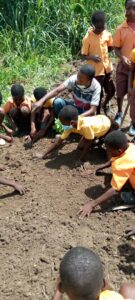
Learning about ag can be fun and engaging.
To teach children about agriculture, Self-Help introduced the Youth in Agriculture Program in 2018 through the Agriculture and Entrepreneur Program. Currently, eight schools are enrolled in the program, and membership is composed of students from upper primary schools and junior high schools. The eight schools are located in rural communities in the Ashanti Region where Self-Help operates: Nkontomire, Nyamebekyere, Kyereyase, Timeabu, Bedabour, Beposo, Nkawkom and Kukuboso.
Through the program, the students in these communities are equipped with resources, knowledge in good agricultural practices, and entrepreneurship skills training. Emphasis is placed on hands-on and experiential learning methods. Each club identifies and implements a field project throughout the school year to practice what they are learning and to generate an income to sustain the club. Lessons learned during the club activities and field visits are carried on to their parents’ farms and their communities. Some of the students have even started their own individual projects at home with support from Self-Help and their club advisors.
Self-Help’s team knows that the future of Ghana depends on the quality of agriculture and by engaging young people in learning about agriculture, Self-Help hopes to improve family nutrition and local community markets.

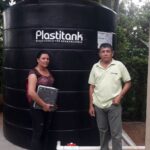 Previous Post
Previous Post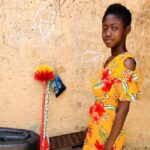 Next Post
Next Post